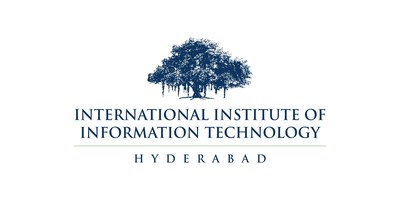
[ad_1]
2021-11-09
– A panel of eminent thought leaders deliberated on current systems, challenges and creative solutions in the implementation of the NEP
– Creative solutions proposed were: developing effective pedagogy models for experiential learning, designing holistic progress cards, and quick formative assessment tools with the help of latest tech and AI
– Panelists included well known leaders from NGOs, education policy makers, grassroot educators, AI researchers and social innovators
HYDERABAD, India, Nov. 9, 2021 /PRNewswire/ — A roundtable meeting on ‘New Education Policy (NEP) & Opportunity for Technology Interventions’ was organised recently by the Raj Reddy Center for Technology and Society, IIIT Hyderabad. The meeting was to understand the New Education policy more comprehensively, identify challenges in its implementation, and explore the possibilities to build solutions for its implementation at the grassroots. Panelists included well-known social leaders from NGOs, policy makers, grassroot educators, social scientists, AI researchers and social innovators.

Panelists shared their experiences and perspectives on problems faced by schools that will hamper NEP adoption, execution challenges in various realms of school education, specifically in rural and government schools.
Broadly the discussion was around 4 major topics that the NEP talks about: a) Efficient Resourcing and Governance through School Complexes – Current state, Challenges and complete digitalization of school complexes. b) Transitioning for Summative to Formative Assessments to Assess (and not Monitor) Student Learning – Possibilities for continuous evaluation of formative assessments to provide immediate feedback and support personalised learning. c) Pedagogical transformation to encourage playful, discovery, inquiry, and experiential learning – Infrastructure required and anticipated challenges for the implementation of the new-age pedagogies. d) Preparation of teachers for the effective implementation of the New Education Policy – Creative solutions that could help with teacher training and preparation in the age of the NEP.
Some of the challenges highlighted included: poor infrastructure and no parents participation leading to low attendance of the students in the schools. Archaic methods of teaching leading to pedagogy failure and waning interest in the students. Lack of collaboration and insufficient human resources result in most new initiatives failing. Absence of enough technology infrastructure impedes upgrading pedagogy models. Delays in hiring of teachers and insufficient teacher training affects the student’s learning outcomes.
The panelists also stated some creative solutions like:
- Leveraging local ecosystems to meet the local needs of the schools;
- Build an accountability system to make the school operations run effectively on ground
- Evolving volunteering systems to reduce the human resource requirements in schools and its management;
- Creative new pedagogy models to be considered like story tellings, discovery/inquiry based learning and project based learning to be used as opposed to the old rote learning methods;
- Leverage AI and latest tech to design holistic progress reports and develop tools for formative assessments to be able to provide immediate feedback with quick action steps to support personalised learning for teachers;
- The teacher recruitment procedures need upgradation for the systematic execution of NEP
- Consistent teacher training and innovation labs to be resourced in schools.
Subsequent to the roundtable, the Raj Reddy center will consider building emerging research-based solutions that can address some of the needs discussed. Knowledge and language technology based solutions to assist teachers, leverage intelligence to personalise learning, explore if cameras and AI can be used to automatically generate basic classroom based data reports for schools and more. The center will also work with one school-complex cluster to pilot technology interventions and explore possible tech solutions for formative assessments and such.
Moderated by Dr. Rohit Kandakatla – Director, KG Reddy College of Engineering.
Panelists invited were: Sridhar Rao – District Educational Officer, Ranga Reddy; Srinivas Rajaram – Hamari Mitti Society; Vinoda Kailas – Navam Foundation; Akhila Nookala – Inqui-Lab Foundation; Shreemoyee Bhattacharya – Learning Curve Foundation; T.N. Sridhar – Teacher(President Award); Punyavathi Kollu – Teacher; Pramod Bathena – Founder, Alokit; Prateek Reddy – Founder, Bolt Education; Harsha Kankanala – Founder, Edwisely.
About Raj Reddy Center:
The Raj Reddy Center will take a bottom-up, problem-centred approach to leverage research and technologies in solving societal problems. It will identify a few socially relevant themes and take up projects in them to create a sequentially linked amplification of impact. It will take a wholesome view of the problem addressing all aspects, technology and otherwise, through to realising value on ground.
About IIIT Hyderabad: The International Institute of Information Technology, Hyderabad (IIITH) is an autonomous research university founded in 1998 that focuses on the core areas of Information Technology, such as Computer Science, Electronics and Communications, and their applications in other domains through inter-disciplinary research with great social impact. Some of its research domains include Visual Information Technologies, Human Language Technologies, Data Engineering, VLSI and Embedded Systems, Computer Architecture, Wireless Communications, Algorithms and Information Security, Robotics, Building Science, Earthquake Engineering, Computational Natural Sciences and Bioinformatics, IT in Agriculture and e-Governance.
Website: www.iiit.ac.in
For further information, please contact:
Sunory Dutt
Head of Communications
IIIT-Hyderabad
E-mail: sunory.dutt@iiit.ac.in
Logo: https://mma.prnewswire.com/media/600789/IIIT_Hyderabad_Logo.jpg

[ad_2]
Source link